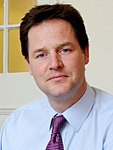United Kingdom local elections, 2010
|
|
|||||||||||||||||||||||||||||||||||||||||||||||||
|---|---|---|---|---|---|---|---|---|---|---|---|---|---|---|---|---|---|---|---|---|---|---|---|---|---|---|---|---|---|---|---|---|---|---|---|---|---|---|---|---|---|---|---|---|---|---|---|---|---|
|
|||||||||||||||||||||||||||||||||||||||||||||||||
|
170 English Local Authorities |
|||||||||||||||||||||||||||||||||||||||||||||||||
|
|||||||||||||||||||||||||||||||||||||||||||||||||
The 2010 United Kingdom local elections were held on Thursday 6 May 2010, when the 2010 general election also took place. Direct elections were held to all 32 London boroughs, all 36 metropolitan boroughs, 76 second-tier district authorities, 20 unitary authorities and various Mayoral posts, all in England. For those authorities elected "all out" these were the first elections since 2006. The elections that were due to be held in Exeter and Norwich were cancelled due to structural changes. The results provided some comfort to the Labour Party, losing the general election on the same day, as it was the first time Conservative councillor numbers declined since 1996.
Source: [1]
All seats in the 32 London Boroughs were up for election.
One third of the seats in all 36 Metropolitan Boroughs were up for election.
One third of the council seats were up for election in 20 unitary authorities.
The elections in Stoke-on-Trent had originally been cancelled following a referendum result which decided to abolish the existing Mayor and Cabinet system of governance, with replacement elections to take place in 2011 following a review of the council by the Boundary Committee for England. However, it was later decided to hold elections to one-third of the council in 2010 as planned.
Seven district councils had half of their seats up for election.
69 district councils had one third of their seats up for election.
There were four mayoral elections.
...
Wikipedia



